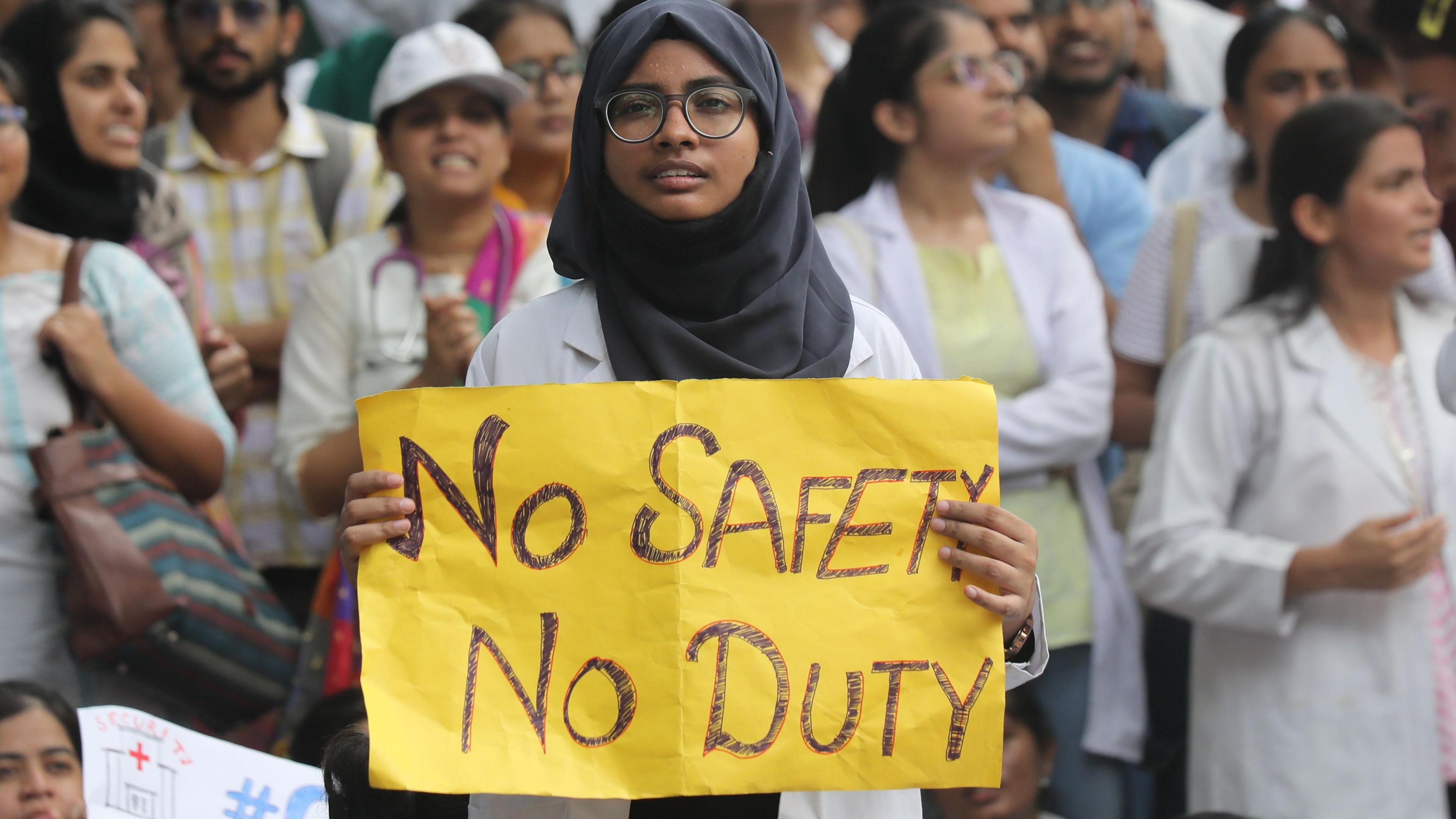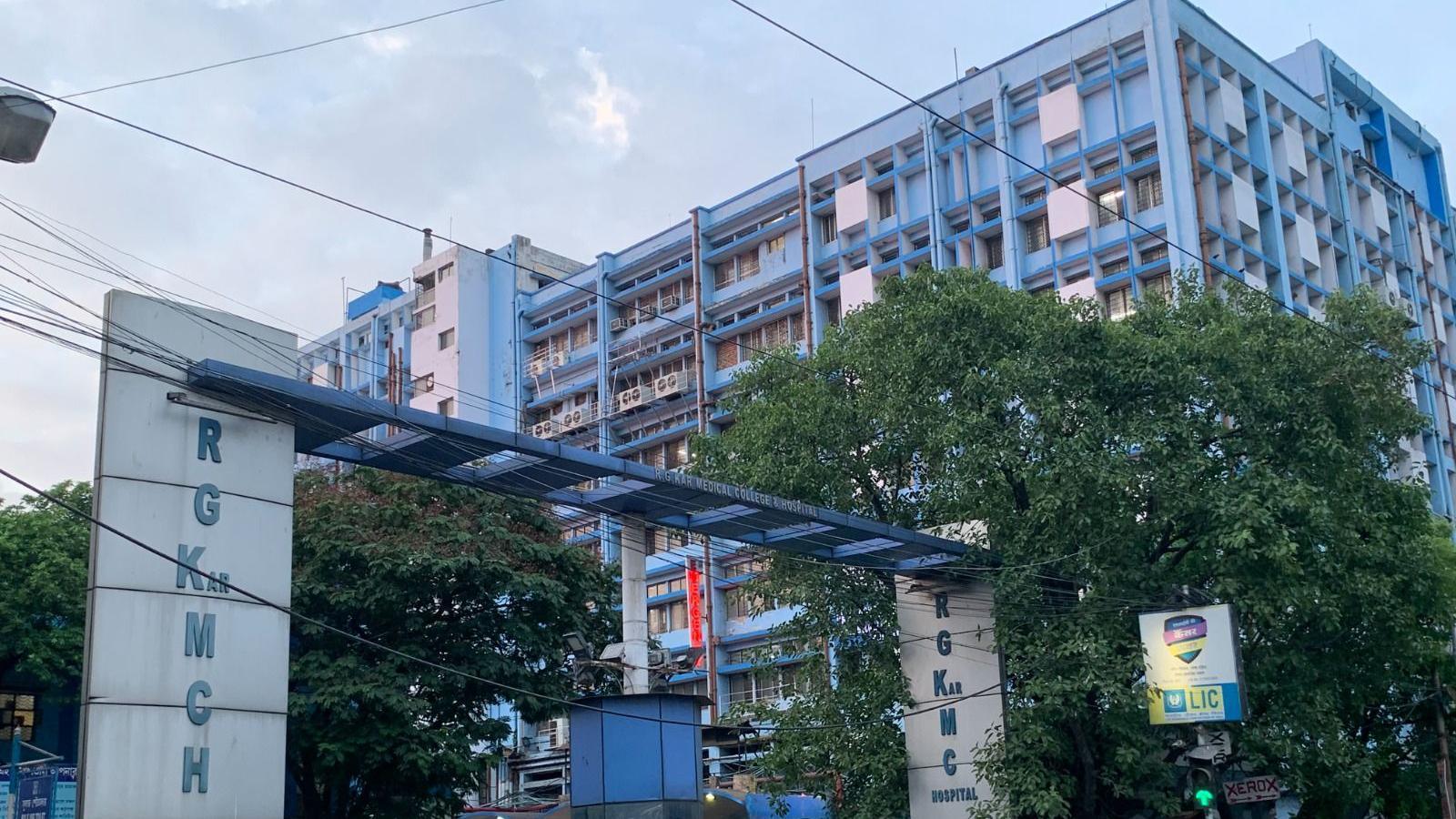Man found guilty in India doctor rape and murder case

The incident sent shockwaves across India and triggered mass protests
- Published
A court in India has convicted a man of the rape and murder of a trainee doctor - a crime that sparked nationwide outrage.
Sanjay Roy, a hospital volunteer worker, was found guilty over the attack, which happened in August last year at a hospital in Kolkata city in West Bengal state.
The incident caused shockwaves across the country, leading to widespread protests and concerns over the safety of healthcare workers in India, especially women.
Judge Anirban Das said the sentence, which will be announced on Monday, would range from life in prison to the death penalty. Roy has maintained his innocence and said previously that he was being framed.
The victim's mother told the AFP news agency that people would lose faith in India's legal system if Roy was not handed the death penalty.
The body of the 31-year-old doctor, who cannot be named for legal reasons, was found on 9 August 2024 at at the busy, state-run RG Kar Medical College and Hospital in Kolkata.
After a gruelling 36-hour shift, she had gone to sleep in the hospital's seminar hall. Her half-naked, severely injured, body was later discovered near a podium by a colleague.
The post-mortem examination found the victim had been strangled and had injuries showing she fought back.

The incident happened at the state-run RG Kar Medical College and Hospital in Kolkata
According to the charge sheet filed by the Central Bureau of Investigation (CBI), which the BBC has seen, Roy went to the hospital in a drunken state and found the female doctor sleeping alone.
He was arrested a day after the crime.
The case was initially being investigated by the Kolkata police but later the court handed over the probe to the CBI after state officials were accused of mishandling it.
For weeks after the incident, doctors and medical students across India held protests and rallies demanding justice and better security for doctors.
One such protest, the "Reclaim the Night" march, saw tens of thousands of women walk through the streets at night in Kolkata and other cities on 14 August, the eve of India's Independence Day.
In December, the victim's parents petitioned the Calcutta High Court for a fresh investigation, expressing a lack of faith in the CBI's investigation.
They argued that Roy alone could not have committed the crime and stated they would be satisfied only when all those involved were brought to justice. The high court has said it will consider the plea only if the Supreme Court - which is monitoring the case - directs it to do so.
The incident raised concerns about rising cases of violence against health workers in India - many of whom face physical abuse by angry patients or their relatives.
A 2017 survey by the Indian Medical Association found that over 75% of doctors in India have experienced some form of violence. The survey also revealed that nearly 63% of doctors fear potential violence while treating patients.
Meanwhile, sexual violence against women remains a widespread problem in India. More than 31,000 rapes were reported in India in 2022, external, according to data from the National Crime Records Bureau (NCRB).
Many rape cases in India go unreported, mostly due to social stigma around sexual violence and a lack of trust in the police and judicial system. Activists say this often results in the victim being shamed instead of the perpetrator, especially in rural areas.
In 2012, the rape and murder of a medical student by a group of men in India's capital Delhi drew global attention and triggered similar, wider protests.
The public anger prompted authorities to amend rape laws in 2013. The changes broadened the definition of the crime, set strict punishments for sexual assault and lowered the age at which a person can be tried from 18 to 16.
Follow BBC News India on Instagram, external, YouTube,, external Twitter, external and Facebook, external.